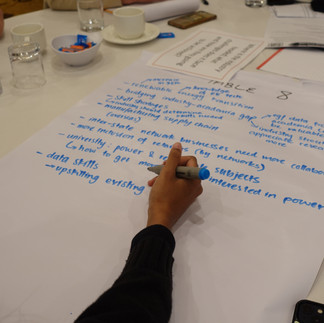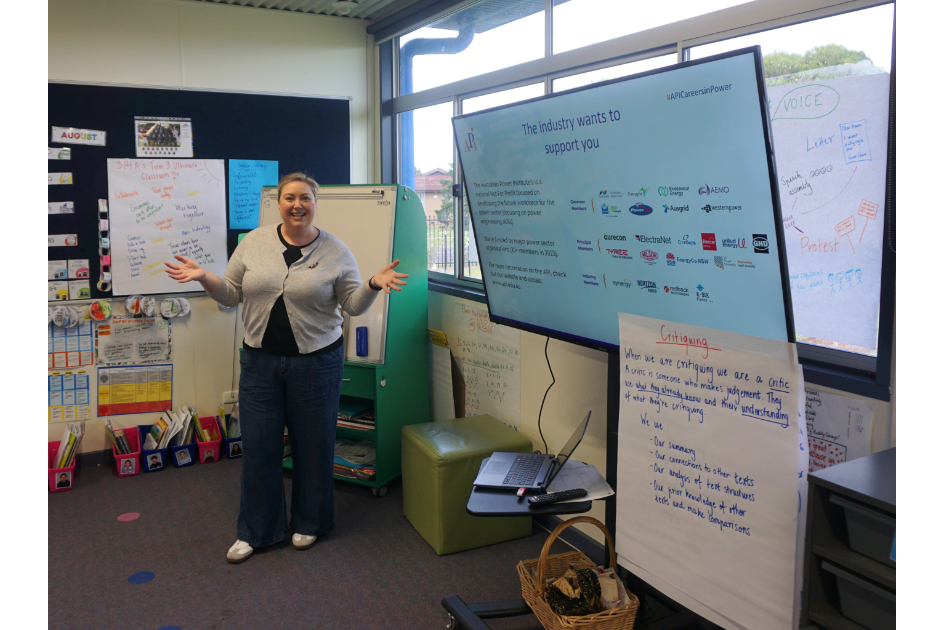Back to the future....workforce forum
- David Pointing

- Jun 21, 2022
- 3 min read
We all have differing views and ideas of the future, so we bought together 100 current students and professionals working in the power industry to hear what they collectively thought was going to happen. Not only that, but what we could do if we had no limitations and what we could learn from other sectors.

This API Future Workforce Forum was held during the 2022 Summer School and included the Early Career POWERful Women retreat participants.
Heidi Sick, Aurecon, Kim Cassidy, Energy Queensland and David Pointing, API discussed the
challenges and opportunities for workforce development in the power sector followed by an update on national actions on strategic workforce planning for the power sector by Holly Taylor (RACE for 2030 CRC workforce), Leonie Horrocks (Australian Government’s new Australian Energy Employment Report (AEER)) and Jane MacMaster, Chief Engineer, Engineers Australia.
Following the presentations, each table was provided a questions to work on to develop potential actions and learnings we can take away. (We used the program MIRO, to share these). The questions were:
1. What would you do if not constrained by the existing systems? How would you change the existing systems?
2. Where is the industry headed; what challenges does it face and how are they going to be actioned?
3. What lessons from other industries can be translated to Power? How?
See below for a selection of the answers shared.
After each group had presented their feedback and actions (and a break for sustenance) the forum participants got to sit back and learn from Dr Fiona Kerr (Founder of The NeuroTech Institute) who presented on her experience as a thought leader in human connectivity and synchronization, partnering with technology and leading future ready, resilient organizations and inspired everyone in the room to TAKE WHAT THEY HAVE SHARED and be the agents of change for the future of the power industry.
The outcomes (a subset of responses)
Where is the industry headed; what challenges does it face and how are they going to be actioned?
Headed: 100% renewables, EVs, DERs, Batteries, electrifications, data
Challenges: grid stability, stakeholders, policy, equity, minimum demand, workforce
Actions: Early engagement, integration of DERs, Share data, update policy, update curriculum
Headed: Renewables, decentralised, data centric, digital, cutting edge, innovative, fast paced
Challenges: keeping up with the pace, skills gaps, horsepower to run big data, collaboration with stakeholders, regulating lags, coal powered workforce, shrinking industries
Actions: Less is more, EV standards, coaching workforce, uni level short courses, encouraging innovation and collaboration, stakeholder education, urgent and streamlined regulation
What would you do if not constrained by the existing systems? How would you change the existing systems?
4 day working week, hiring people with similar work/life balance values, change the way we look at the working week (not hours based, tasked based instead)
International employment, inclusion of other ideas and cultures, implement an exchange program between local and international companies
Sponsored degrees (Subsidence)
Industry professionals as lecturers
Update courses to suitable industry standards
Knowledge sharing to students for jobs in power
Improve customer focus
Bring more creativity and curiosity
Build diverse environments (different specifications)
What lessons from other industries can be translated to Power? How?
Innovation/Adaptability (from Music/Transport industry) Communicate to universities about the current needs of the industry
Social license / Customer focus (from retail/hospitality) Transparency and willingness to engage stakeholders
Preventative versus corrective (from cyber security) Implementation of data analysis to determine actions before they are required.
Safety as a culture (from Mining) Starting the conversation and leading by example
Diversity and inclusion (University) Education
Learn from industries like Silicon Valley in promoting energy/power
Change the narrative on what we do – solve problems & working with cutting edge tech
Introduce Electrical engineering at high school
Create progressive workplaces
Establish industry links into university and research
















Comments